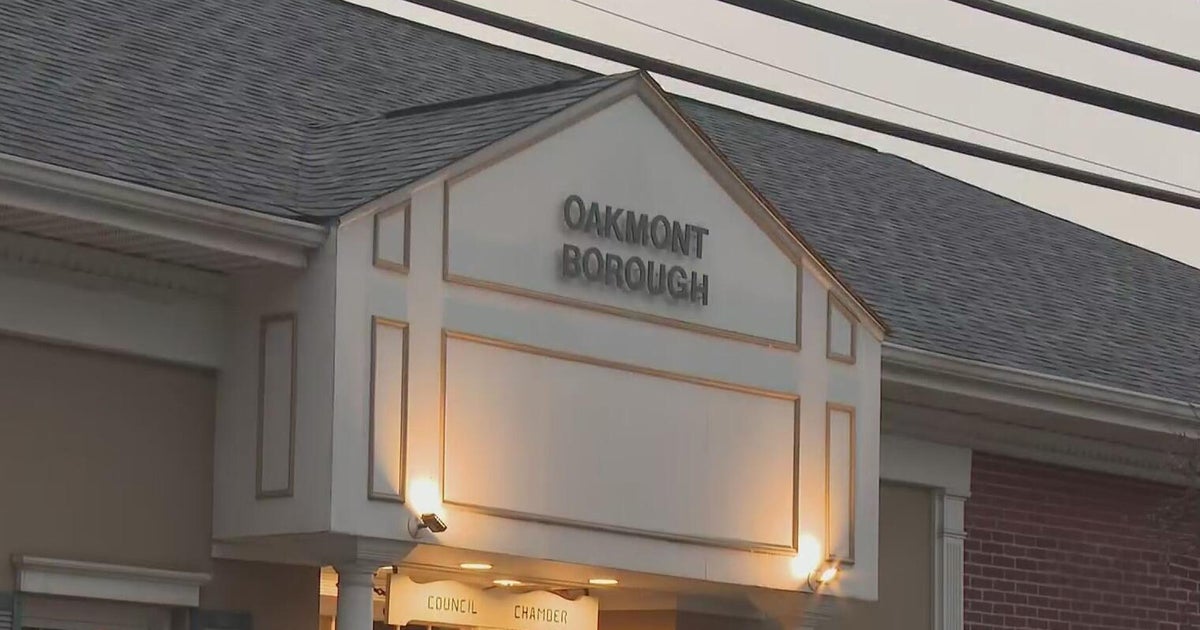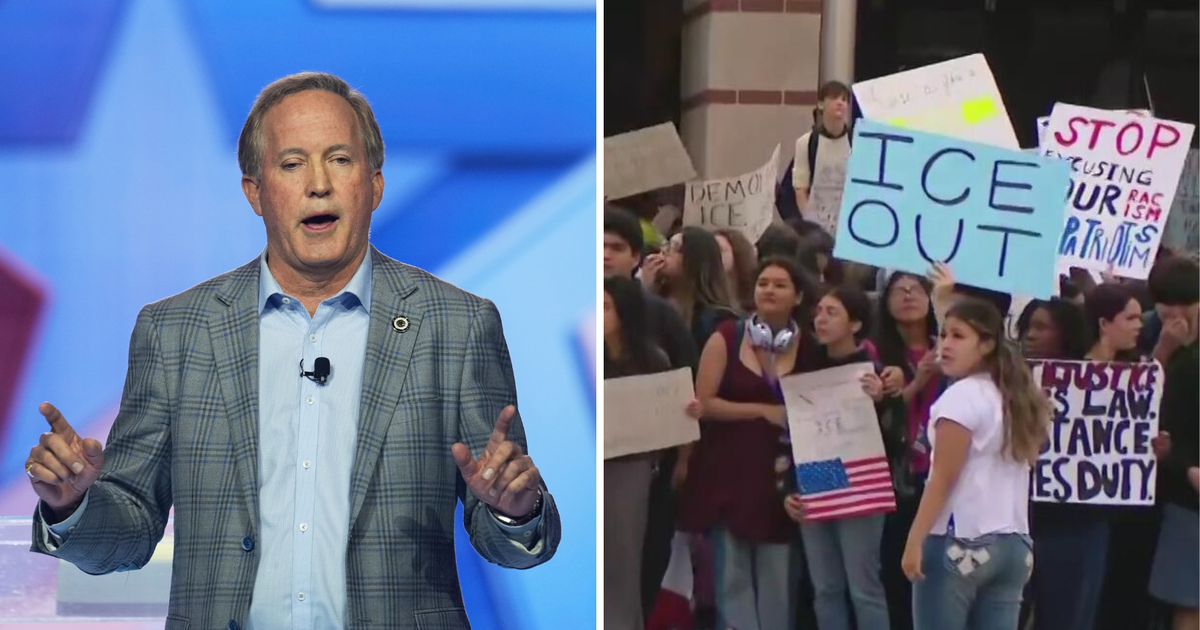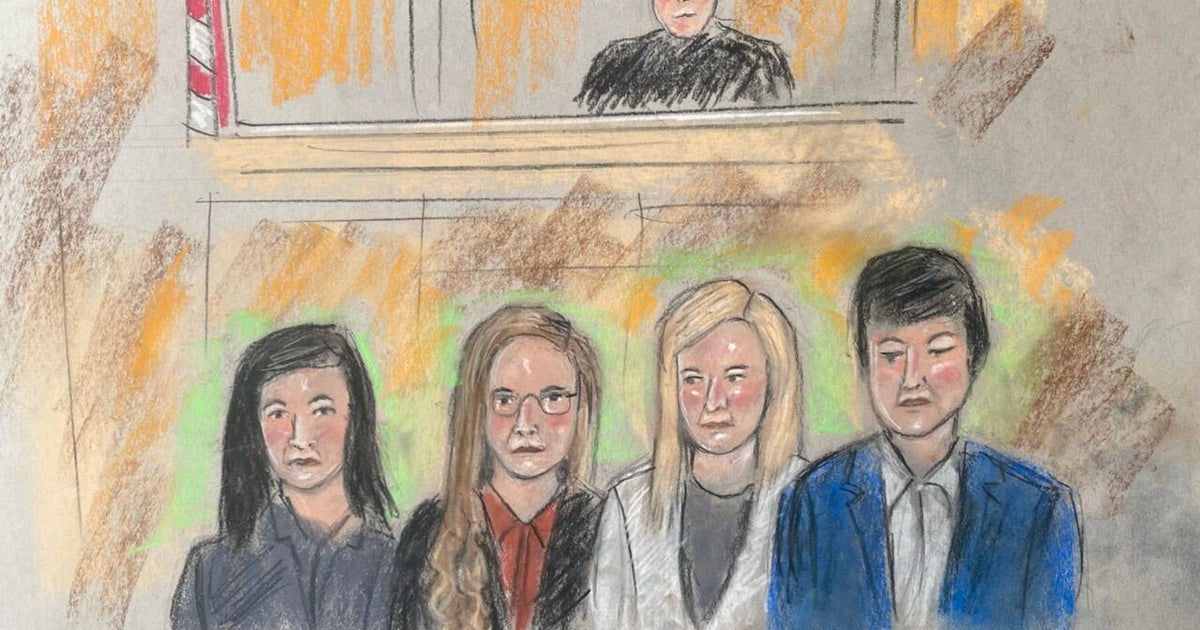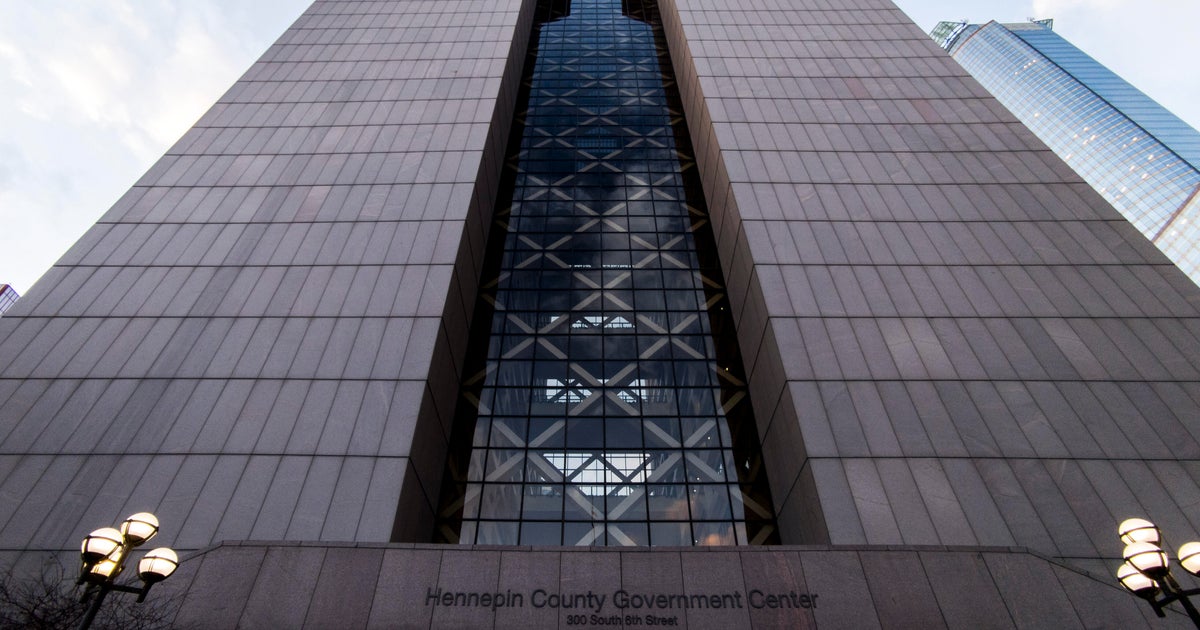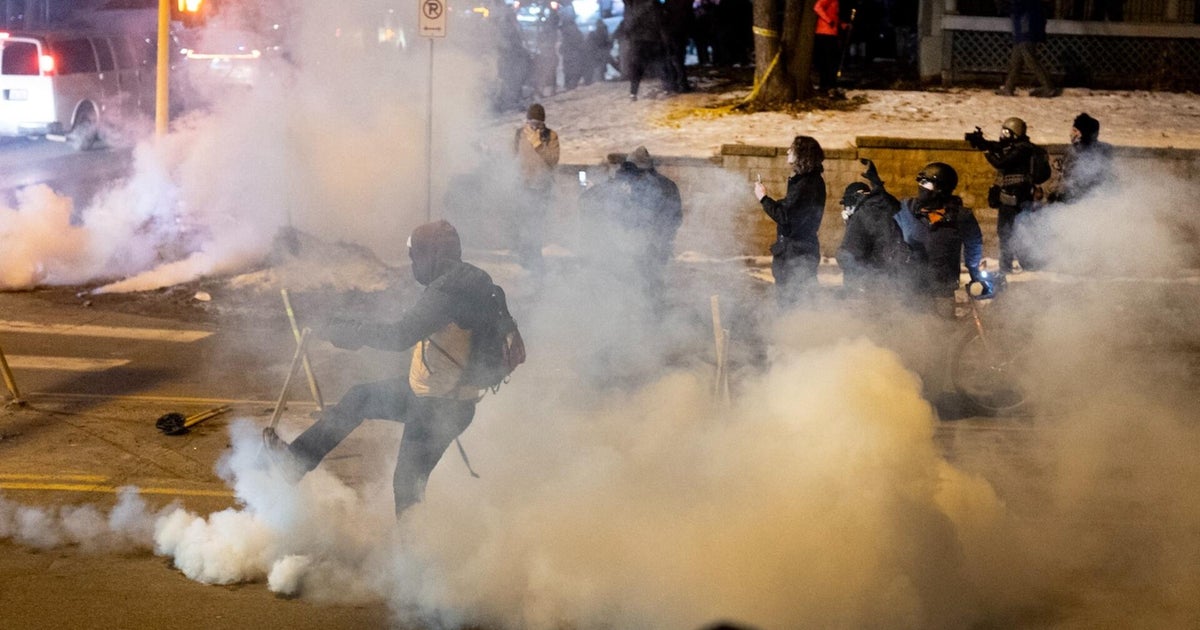Texas Asks Court To Allow Its Ban On 'Sanctuary Cities'
DALLAS AND NEW ORLEANS (CBSDFW.COM/AP) — With immigrants and their advocates chanting and beating drums outside, a federal appeals court heard arguments Friday on whether it should allow a Texas law aimed at combatting "sanctuary cities" to immediately take effect.
Under the law, Texas police chiefs could face removal from office and criminal charges for not complying with federal immigration officials' requests to detain people jailed on non-immigration offenses.
U.S. District Judge Orlando Garcia blocked much of the law on Aug. 31, a day before it was to take effect. The state appealed to the New Orleans-based 5th U.S. Circuit Court of Appeals.
Dallas residents took part in protests against the controversial Texas law on Friday.
From Dallas to New Orleans, about 40 Metroplex residents traveled to the home of the Fifth Circuit Court of Appeals to protest. Through a FaceTime interview, Juan Carlos Cerda from Dallas told us he believes the law the discriminatory against Hispanics.
"It would mean businesses would shut down because of lack of workers, immigrants fleeing the state," he said.
Like Cerda, many believe a provision in the law would make Hispanics an easy target for profiling. SB4 allows police officers to ask a person's status in the United States if they do not have ID.
Tarrant County Sheriff, Bill Waybourn, is a supporter of the law, and points out the law explicitly prohibits racial profiling.
The state asked Sheriff Waybourn to contribute a written statement for Friday's hearing about how SB4 would impact his department. Deputies with the Tarrant County Sheriff's Department haven't started training on the law yet.
"The training that we will reinitiate is the racial profiling issues, making sure that there's no racial profiling going on and to understand that they cannot be asking (legal status) to victims of crime," said the Sheriff.
The Grand Prairie Police Department has given its officers extensive training, including meeting with the Hispanic community to assure them they won't be turned over to immigration officials if they report crime or are a victim of crime. Department leaders fear the law will keep immigrants from reporting crime. There is a chance the court could throw out parts of the law and keep others.
"Then we're going to have to look at which parts of Senate Bill 4 will we implement in policy and which parts will we still hold waiting on further court action," said Police Chief Steve Dye.
If the court rules in favor of SB4, it would become law immediately, sending police departments scrambling to meet the new requirements.
Arguments on Judge Garcia's injunction against parts of the law are scheduled for the week of Nov. 6. However, state officials, joined by the U.S. Justice Department, sought an emergency stay allowing enforcement to begin. That request was before a three-judge panel of the 5th Circuit on Friday morning. Court officials said the panel would begin discussing the case immediately after the hearing ended, but a decision was not expected Friday.
Various local governments in Texas are fighting the law, which also allows police to inquire about people's immigration status during routine interactions such as traffic stops — a provision Garcia didn't block.
Municipal officials from Dallas, Houston, El Paso, San Antonio and Austin are among the opponents. The American Civil Liberties Union is fighting the law on behalf of the border city of El Cenizo. The Mexican American Legal Defense and Educational Fund represents other localities.
"Texas can tell its localities, 'You must cooperate,'" Scott Keller of the Texas Attorney General's Office said as he was questioned by Judge Stephen Higginson on issues including whether the state law illegally pre-empts federal responsibility for immigration control.
U.S. Attorney General Jeff Sessions has praised the Texas law and the Department of Justice filed arguments in support of it, as did several attorneys general from other states.
The law's opponents argue it violates the Fourth Amendment by requiring police to detain people suspected of illegal immigration without probable cause. They also say it illegally puts local police in the federal role of immigration enforcement officers, and is unconstitutionally vague as to exactly when a local law enforcement officer would be in violation of the law.
"They just don't want to be told that they have to cooperate no matter what the situation is on the ground," Lee Gelernt, of the ACLU, said after Friday's hearing.
"They want some discretion to ensure that they are satisfying their own view of the Constitution and that they're not doing anything to harm their own communities."
Judge Leslie Southwick raised the possibility that the panel could lift part of Garcia's stay, perhaps allowing part of the law to go into effect, but without the threat of penalties for local law officials. Nina Perales, of the Mexican American Legal Defense organization, told a reporter outside of the hearing that blocking the penalties would not be enough; the problem, she said, is that they would still be duty-bound to enforce the law.
Supporters of the state law say immigration officials have already determined probable cause when they seek to have local officials detain someone. They also argue that federal and local officials have a long history of cooperation on immigration matters and that the law is clear in its prohibition against local government's policies restricting immigration enforcement.
The measure won passage in the Republican-controlled Texas Legislature and was signed by Republican Gov. Greg Abbott despite opposition from business groups, which worried that it could cause a labor-force shortage and send a negative economic message.
Judge James Dennis joined Southwick and Higginson on Friday's panel. Dennis was nominated to the court by Democratic President Bill Clinton; Higginson, by Democratic President Barack Obama; Southwick, by Republican President George W. Bush.
(© Copyright 2017 CBS Broadcasting Inc. All Rights Reserved. The Associated Press contributed to this report.)
